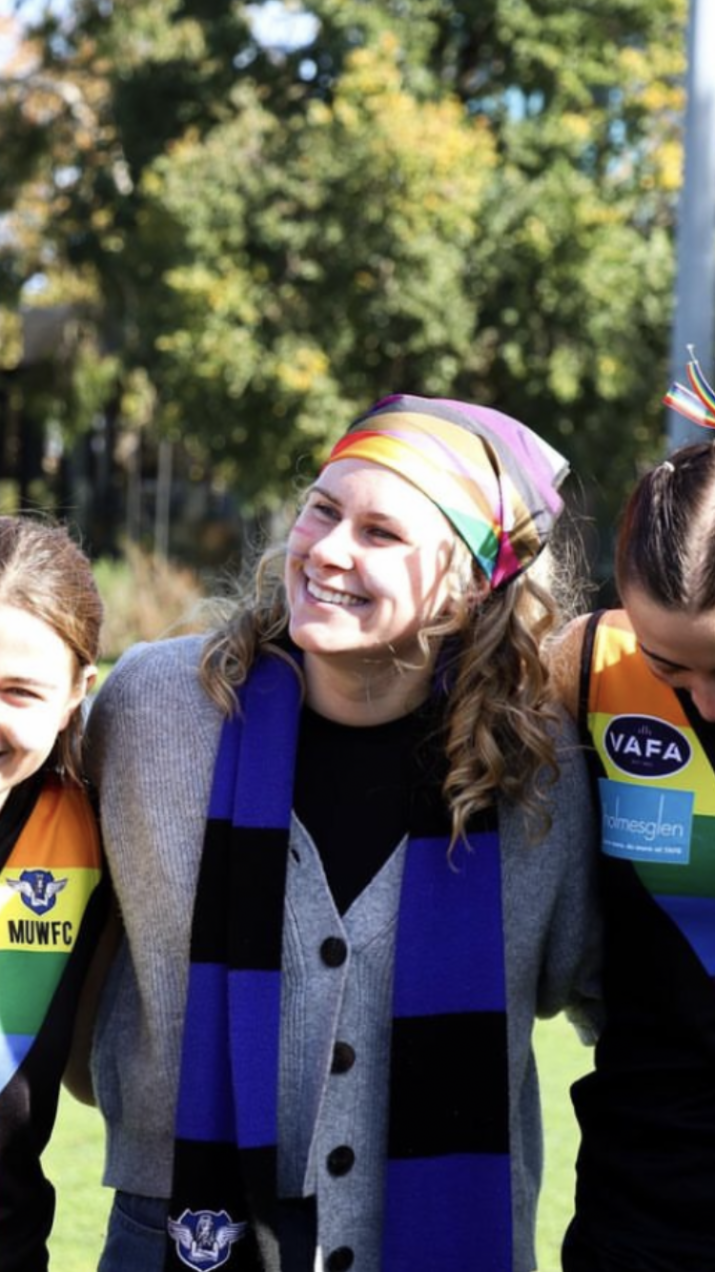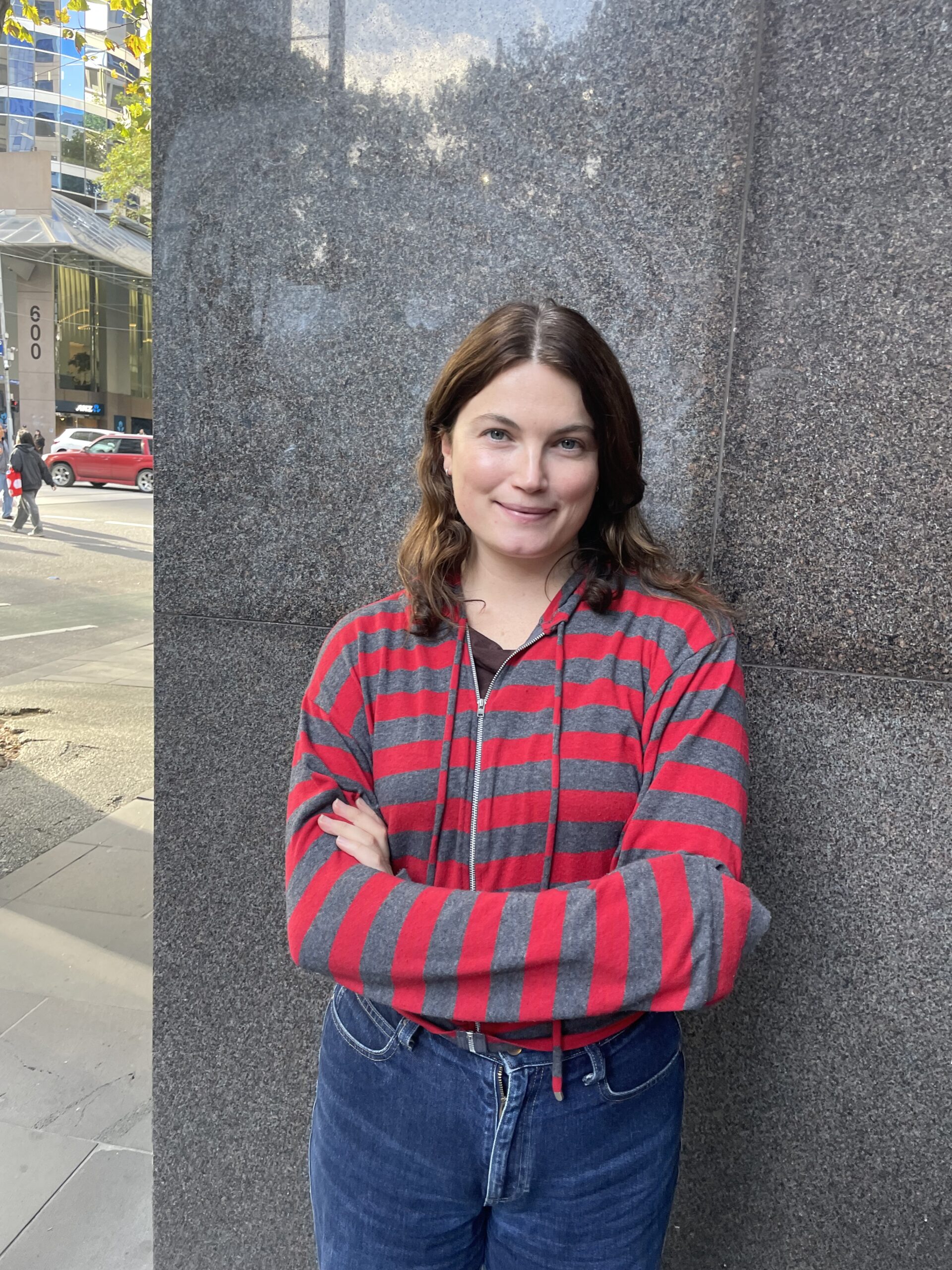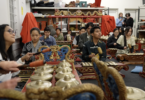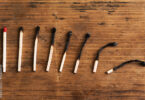Why it’s time for the AFL to introduce a pride round and proudly stand against homophobia.
The striking and vivid rainbow flags are the first things you see, then people smiling, the pumping loud music is the first thing you hear, then cheering and laughter.
Player’s in rainbow uniforms, hugging, supporting each other, the embrace of each person as they bustle through the race and onto the field is quite a sight, beautifully symbolic of strength and solidarity.
I am watching a football match in the Victorian Amateurs Football Association, but it feels more like a party celebration, and it just so happens to be both. Today is an annual pride game at Melbourne University Oval, which celebrates and recognises the LGBTQI community, and inclusivity in sport.
Maddy Noack, the president of the Melbourne University Women’s Football Club has excitement written all over her face.
She spoke with me about how incredibly proud the football club is supporting the LGBTQI community and wants to make sure this day is meaningful.
“We make sure queer people within our community are really privileged and that their voices are hugely a part of the planning of these rounds and these celebrations” Ms Noack said
It’s evident to see how important these lower-level pride rounds are when I take a look around at the Melbourne University oval and see the crowd descending and the rainbow colours draped across each person.
It is a vital time for football , as there needs to be proof that the voices of those in the LGBTQI community are being heard by the AFL. This season has already seen three separate incidents of homophobic slurs being used by players and coaches on the field.
Jason Ball was the first AFL player at any level in the men’s game to come out as gay in the national media and was awarded the 2017 Victorian young Australian of the year.
He said it has been amazing to see pride rounds at the grassroots level, but the fact there is an AFLW pride round is a jarring disconnect from the men’s competition.
“We’ve seen St Kilda and Sydney have the pride game, but every club deserves to go through that process and have that opportunity and their LGBTQI fans deserve to be celebrated just as St Kilda and Sydney’s do,” he said.
“I understand that the AFL is wary of putting a small minority of fans offside who can be very vocal in their opposition to sort of anything, they are probably similarly vocal against the indigenous round…these are not the people who should be pandered to”, he said.
Ball is a former local player from the Yarra Glen Football Club in Victoria.
He spoke about how sanctions alone for homophobic slurs aren’t going to change the culture and the abuse he received growing up at school and in a football environment, the depiction is harrowing.
“When I was a young kid struggling to come to terms with my sexuality, especially in the world of football, hearing my teammates, hearing the opposition, hearing my coach use this language…it had a shattering impact on my sense of self- worth…it has a really damaging impact,” Ball said.
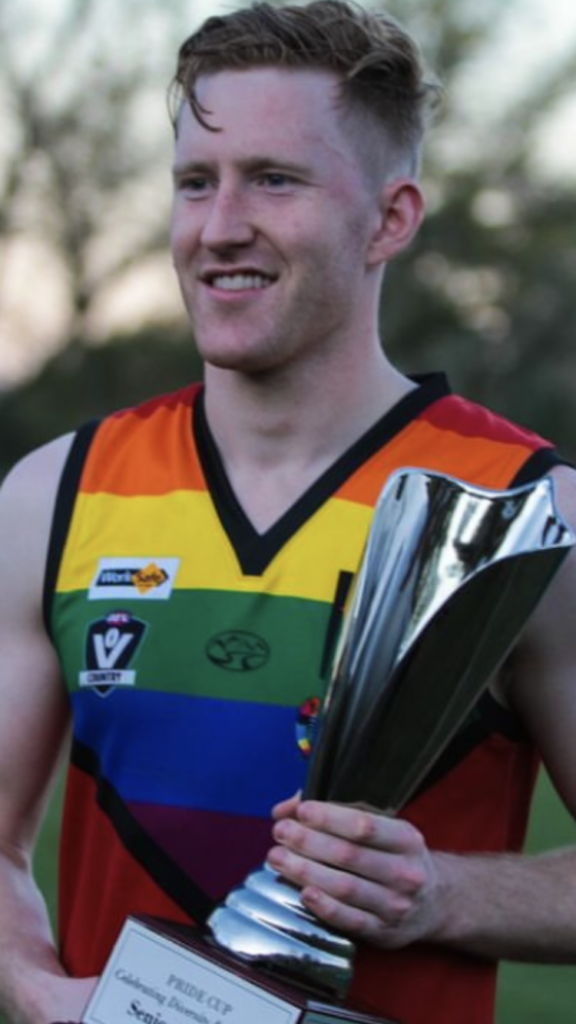
Pictured: Jason Ball, holding the pride cup. (Instagram)
I have played at football clubs, I have watched local games for years, I have heard people in the crowd as they sip their beers, watch the game and hide behind their abuse claiming it is just ‘supporting’.
It starts with calling one of the players ‘soft’, then it moves on to ‘piss-weak’ and you can be rest assured it will end with a homophobic slur.
According to a study by “out on the fields” which focused on LGBTQI exclusion and discrimination , 80 percent of people have witnessed homophobic behaviour in sport. The study highlights homophobic language as the primary driver of suicide.
“It cuts deep, you know, that some of these words that have been used, I remember them being written about me on the back of a toilet door in high school”.
– Jason Ball
Do not stay quiet when homophobic language is heard, this culture in football has been conditioned and has ingrained people from a young age, but it’s time to break the cycle of silence.
Imagine a young child getting ready to go to school, next time you hear someone say this is ‘woke gone mad’ and doesn’t need to be spoken about in football, tell them to think of a young child lacing up their boots, excited to play football, before the environment they walk into may destroy the fabric of their well-being to the point where they feel it’s not worth living.
The LGBTQI community are four times more likely to attempt suicide than their peers, if people were dying of a disease at the rates people in the LGBTQ community are from discrimination, it would warrant a royal commission.
It’s time for football to show it won’t just get behind slogans and that real change will be made, so the claim of being a true ally to the LGBTQI community will have evidence to back it up.
Holding the first pride round will be a good starting point to send a message that LGBTQI voices are being listened to by the AFL.
I asked Ball if there was any hope for an AFL player to come out in the not too distant future , he says he hopes so but is saddened by the pervasive culture of homophobia that persists and believes it will be the next generation once they are in a safer environment.
“I think the sad reality is that when you’ve grown up in a culture where you are constantly being shamed for who you are, where you constantly feel like people around you are going to judge you, you may end up doing that [staying in the closet] for the rest of your life”.
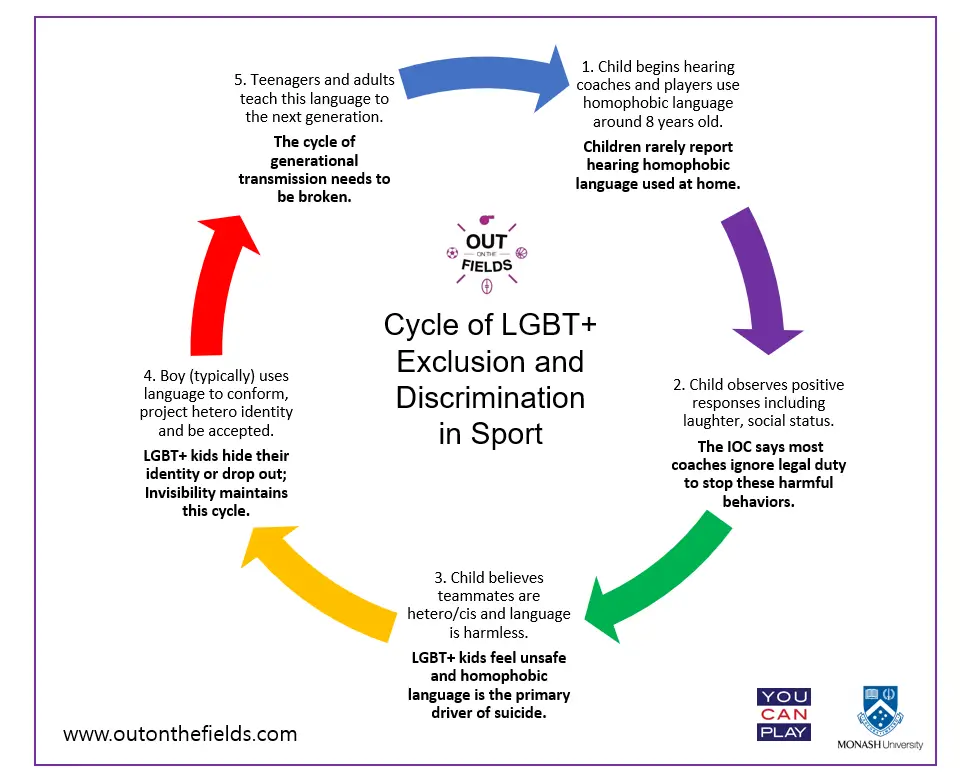
Featured image: @malliashots

